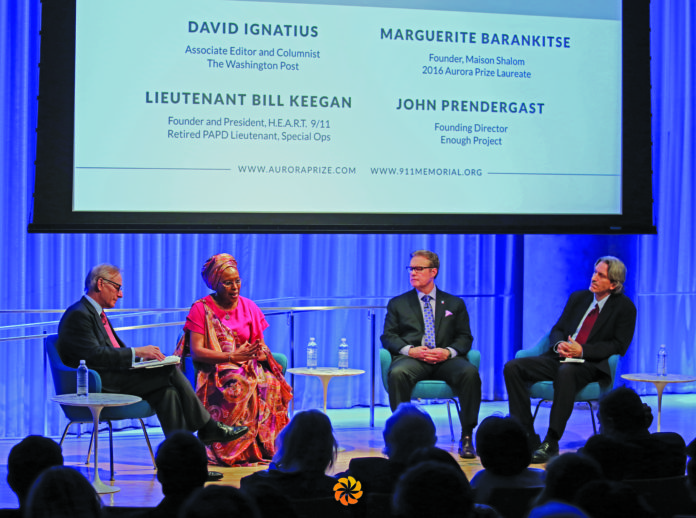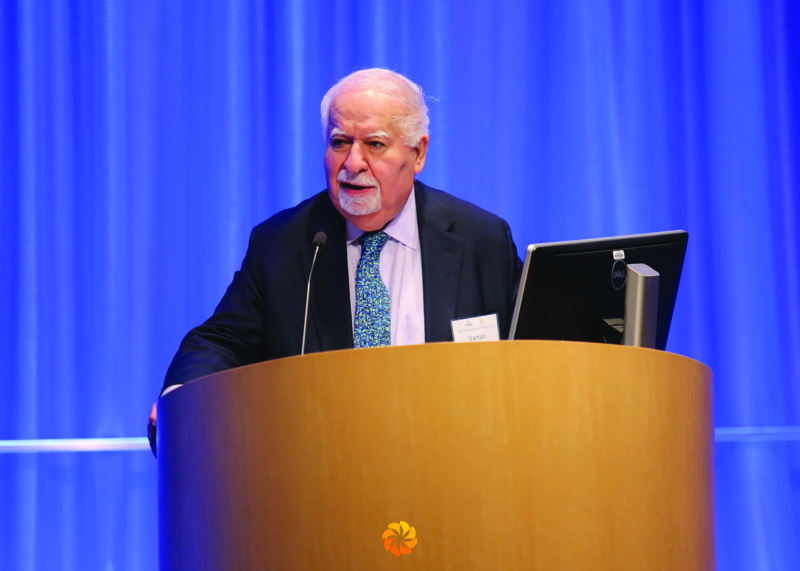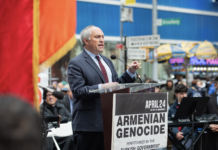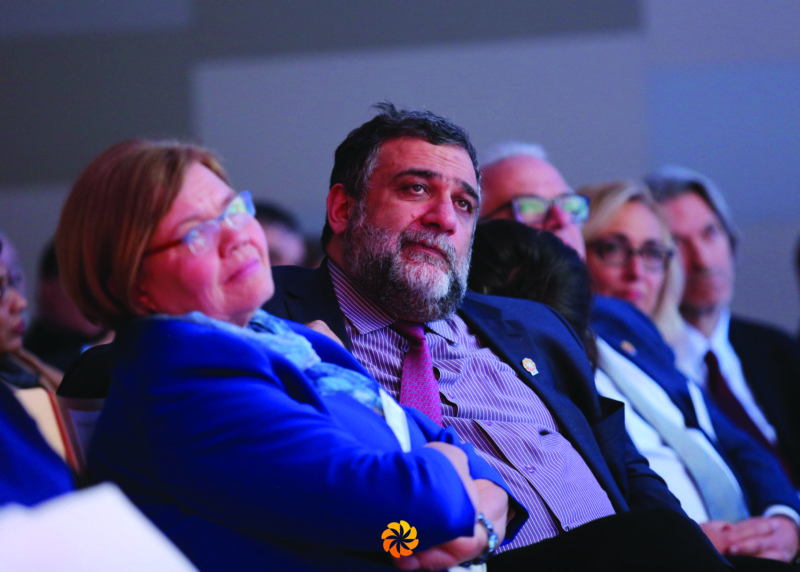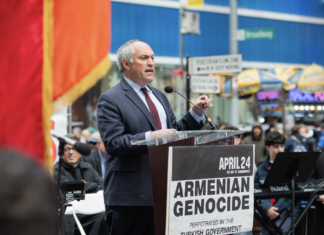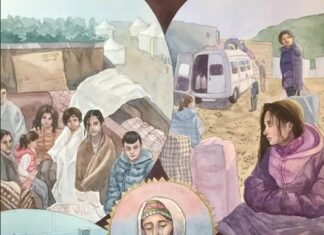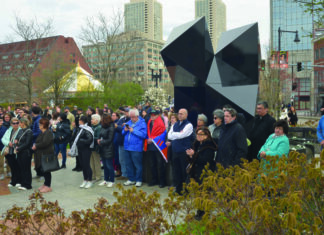By Taleen Babayan
Special to the Mirror-Spectator
NEW YORK — In the shadows of where the Twin Towers once stood as symbols of American pride and under the reflective gaze of the Statue of Liberty that represents equal opportunity for all those seeking a better life, the Aurora Humanitarian Initiative hosted its Aurora Dialogues on Thursday, March 1, at the National September 11 Memorial and Museum.
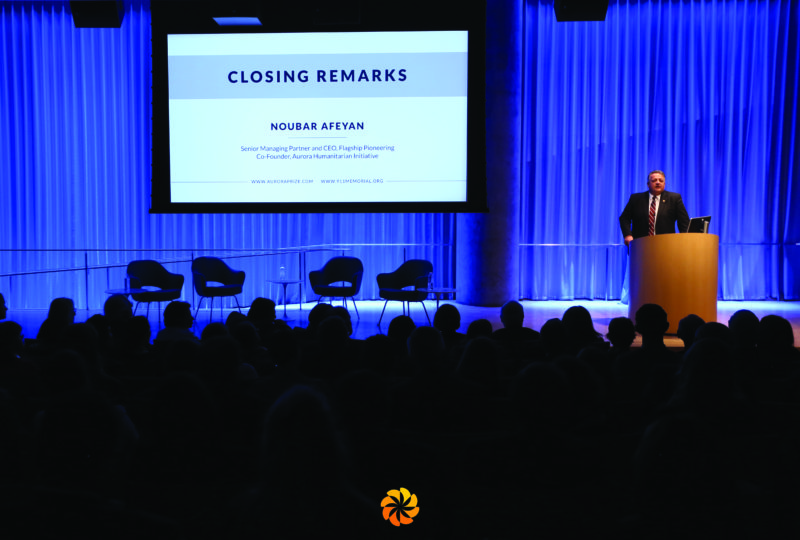
A visionary initiative that launches Armenians onto the world humanitarian platform, the Aurora Initiative hosted the dialogues, titled “Solidarity Beyond Borders: Stepping Up When Others Step Back,” to discuss and champion the tireless efforts of individuals around the globe who strive to create positive change in the face of adversity, much like those who came to the rescue of Armenians during the Genocide over a century ago.
Featuring Aurora Prize finalists Marguerite Barankitse (2016) and Dr. Tom Catena (2017), alongside retired Port Authority Police Department Lieutenant and Special Ops Lieutenant Bill Keegan and John Prendergast, founding director of the Enough Project, the evening’s panel, moderated by David Ignatius, associate editor and columnist for the Washington Post, explored the issue of heroism.
“Tonight we will focus on the best of what people can do,” said Ignatius. “The spirit of heroism and sacrifice that leads people, as happened on 9/11, to step forward, take risk and responsibility for others and make the generous commitment that Aurora is honoring.”



